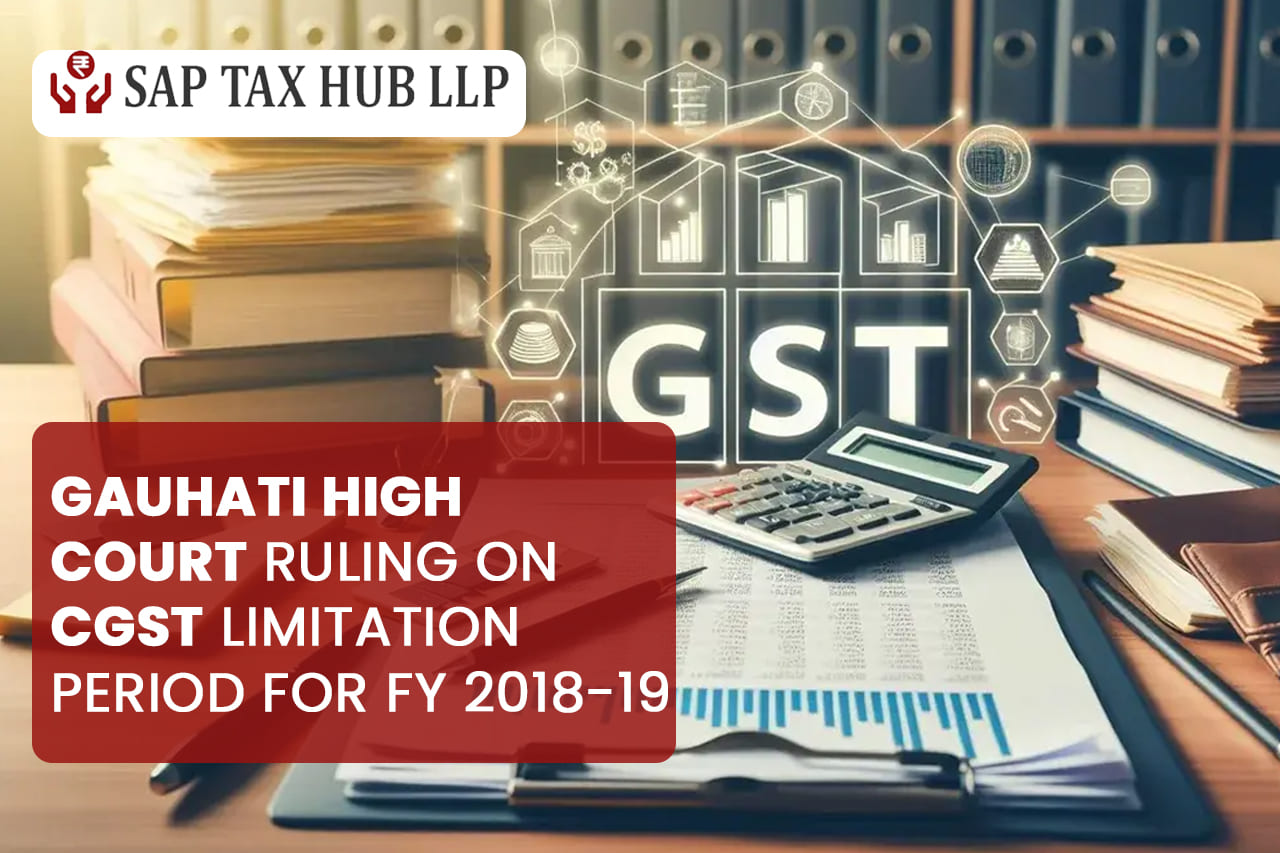Recently, the Gauhati High Court has passed an important judgment relating to limitations for the financial year 2018-19. The court has held in its decision that any orders passed after the statutory limitation period without an extension notification being issued under Section 168A of the Central Goods and Services Tax (CGST) Act would be invalid. The judgment is very crucial for both the taxpayers as well as the authorities concerned.
The Core Issue:
The case rested on the non-extension of the limitation period for the fiscal year 2018-19. Under the CGST Act, there are certain timelines within which orders for recovery can be passed by tax authorities in cases of short-payment of taxes or wrongful availing of input tax credit (ITC). Such time limits guarantee procedural fairness and prevent indefinite uncertainty for taxpayers.
It is pertinent to note that no such requisition time extension under Section 168A had been issued for the financial year 2018-19. Hence, the orders passed beyond the original limitation period were not preserved with legal sanctity. The Gauhati High Court held that this was a violation of provisions of the CGST Act, and, therefore, such orders came outside the jurisdiction of the authorities.
Importance of Section 168A
Section 168A of the CGST Act provides the enabling power to extend all provisions under the Act during “force majeure,” such as the current pandemic of COVID-19. The reason it became instantly relevant during the recent pandemic is because most procedural deadlines were affected.
However, in the FY 2018-19 case, no extension was issued to pass orders after the limitation period. Gauhati High Court laid emphasis that unless there is a valid notification extending the limitation under Section 168A of the IT Act, anything done thereafter would be void.
Impact on taxpayers
This could bring relief for taxpayers, as many received orders post-the limitation period for FY 2018-19. It would be impossible for the tax authorities to enforce such orders since the validity of such orders stands nullified by this ruling. In such a situation, taxpayers must review their orders and institute a suit if such orders were incurred beyond the said timelines.
Another consequence of this ruling is that it makes clear complying with the timeframes applicable under the statutes. The taxpayers and authorities must be more careful about the timeline applicable in such cases, and thus the order and appeals must be filed within the permissible timeline provided by law.
Impact on Tax Authorities
The holding of this judgment for the tax authorities is that timely notifications under Section 168A are required where the extension is required. Failure on that count amounts not only to invalid orders but erodes the robustness of enforcement of the tax regime. Authorities must avoid such lapses in procedure and avert litigation resulting from such an event.
Further, this judgment may demand a re-examination of other such cases where orders were passed after the limitation period without obtaining the requisite extension notification. The authorities would also have to examine the validity of all such orders and correct them wherever it is so warranted.
Gauhati High Court Mandate for Precedent
Such is the verdict of the Gauhati High Court, which has set the key precedential ruling it has. It holds the very elements of limitation regarding the issuance of orders form the very bases of tax administration and cannot be avoided as such, without due process laid down by law being first followed.
It further reaffirmed that the stipulation of procedure and adherence to procedural requirements in tax matters were paramount by declaring that an order passed after the limitation period would be held invalid in cases when no extension of Section 168A exists. Such a judgment is also bound to affect subsequent cases dealing with similar issues, as it now shapes the way tax authorities and taxpayers approach limitation periods.
Conclusion:
This is a landmark ruling on the limitation by the Gauhati High Court for FY 2018-19 and discusses the important role of Section 168A to extend the deadline during these extraordinary circumstances, such as the COVID pandemic. Any orders passed beyond the statutory limitation period would be devoid of any validity if the respective notification is not issued properly under this section.
This judgment reminds all taxpayers and tax authorities of the importance of abiding by statutory time limits and following law; at the same time, it gives a very useful precedent for further limitation period cases under the CGST Act.
Looking for an experienced CA firm in Delhi? Want to read more up-to-date tax rulings and insights? Go to Saptax Hub, the best place to get income tax filing in Delhi. Get expert advice and all resources connected with tax compliance and legal development.




